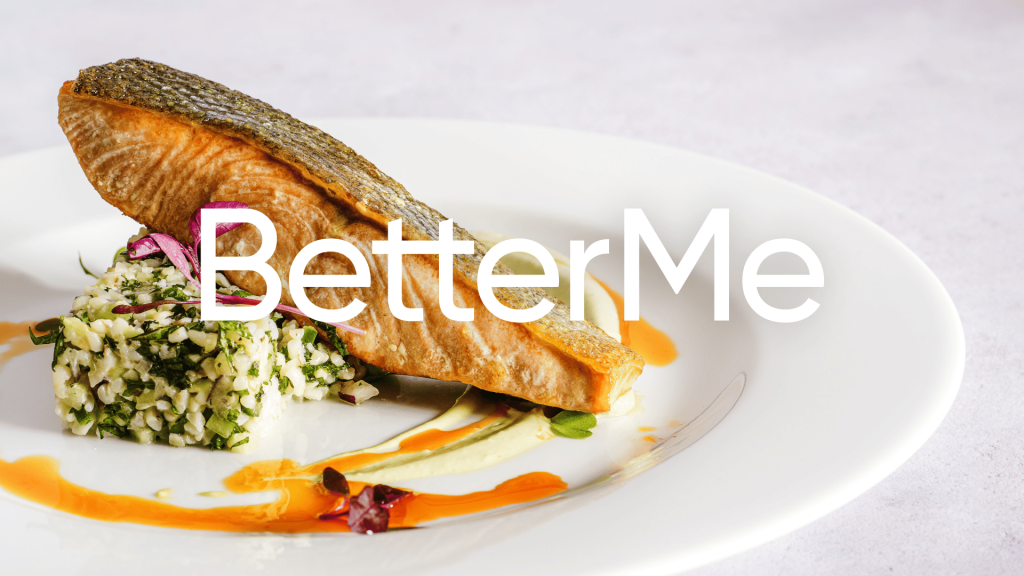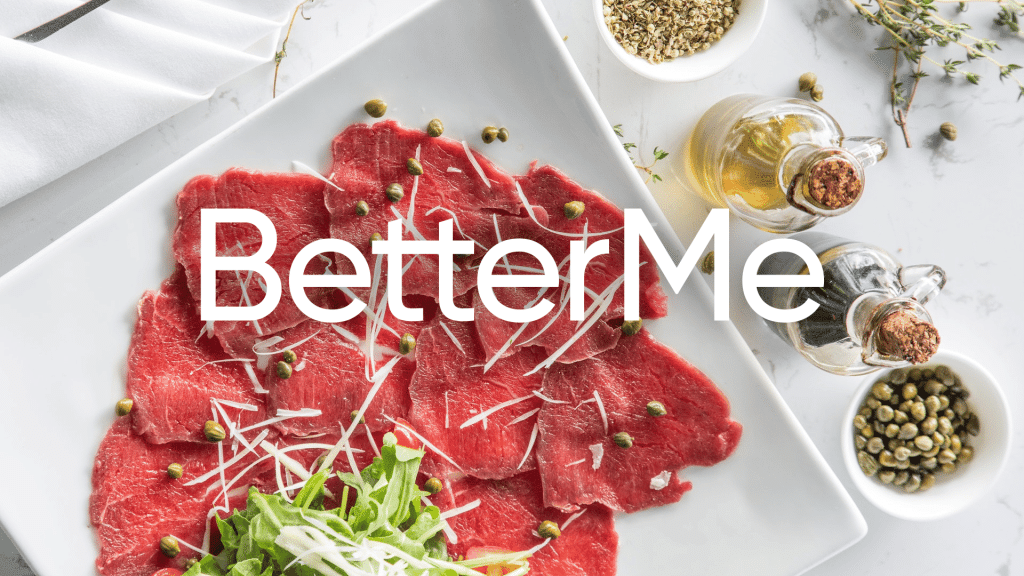In the world of dietary choices, some foods stand out as nutritional powerhouses. Although it is often overlooked, this organ meat contains a treasure trove of health benefits that contribute to the overall well-being of its consumers.
If you find yourself lacking energy or experiencing fatigue, adding liver to your diet can provide you with a much-needed boost. From its impact on energy levels to immune function, there are several health benefits to eating liver. If you wonder how this small yet powerful meat can help you health-wise, this article is the best place to start.
Keep reading to uncover the perks it brings your way. Some of them may surprise you!
What Are the Health Benefits of Eating Liver?
Liver is a valuable source of quality protein and there are many benefits to eating it. For example, it can be part of a healthy diet for weight loss as it is high in protein and other nutrients while relatively low in calories. It plays a role in weight loss due to its high protein content and quality, which satisfies hunger and helps protect against muscle loss (1).
Liver is also rich in nutrients that are necessary for the human body to function well. Check out examples of the exceptional nutritional profile of the liver below:
Vitamin B12
It helps blood cell formation and healthy brain functionality (1).
Read More: Does Vitamin B12 Give You Energy?
Vitamin A
Vitamin A helps immune function, cell growth, and reproduction. It also supports the functioning of body organs, such as the heart and eyes (2).
Vitamin E
Liver also contains Vitamin E, which is a fat-soluble antioxidant. It protects cells from damage, supports immune function, and promotes healthy skin (6).
Vitamin K
The benefits of eating liver include strengthening bones and supporting blood clotting as it contains Vitamin K (5).
Riboflavin (B2)
B2 is important for cell development function and helps convert food into energy (3).
Iron
Iron supports oxygen circulation in the body, which helps people with fatigue and a lack of energy. It also helps with the creation of red blood cells. The iron contained in liver is heme iron, which is easily absorbable by the human body (4).
BetterMe is your fast-track ticket to a long-lasting weight loss! Tailor your fitness journey and maximize your results with just a couple of swipes!
Why Is Eating Liver Good for You?
We are aware that liver is one of the most nutritionally dense foods on the planet. Eating a single serving of liver can help you fulfill the daily recommended amount of several vitamins and minerals. It ultimately reduces your risk of nutritional deficiency. Reasons why eating liver is good for you include:
Increased Stamina
Eating liver is said to result in increased stamina. While scientists have not yet been able to establish the exact reason why this is the case, there are some quite old lab results that back this claim. For example, a study from 1975 suggests that when they are fed with liver, lab rats have more endurance compared to those not fed with it (8).
Stronger Bone and Teeth
Liver contains Vitamin K2, which is beneficial for human bones and dental health (5).
Reduces Cardiovascular Diseases
Some research has suggested that vitamin K2, which is found in liver, may protect against cardiovascular disease, potentially by preventing the calcification of blood vessels (10).
Improves Cognitive Process
Liver provides multiple micronutrients, including:
- Selenium
- Copper
- Niacin (Vitamin B3)
- B12
- Choline
- Iron
All the above micronutrients support human cognition and brain health.
Improves Eye Health
Liver is packed with Vitamin A, which is important for good vision and a deficiency of Vitamin A can result in night blindness (2).
In addition, zinc has been found to be important for eye functioning (9).
Improves Immunity
Vitamin A and other nutrients that are found in liver are important for immune system functioning (2), (3).
How Often Should You Eat Liver?
As liver is quite high in Vitamin A, it should be consumed in measured quantities because an abundance of Vitamin A in the human body may cause toxicity. Overconsumption of liver may damage a person’s own liver as Vitamin A, which is found in edible liver, is processed in the human body by the liver (11). Some medications may also interact with Vitamin A, and pregnant women are advised to avoid liver due to the risk of toxicity.
There is also a possibility that you may consume too much iron (11). Liver is also high in cholesterol, which poses a problem for those who are trying to lower their cholesterol levels, although many people can eat high-cholesterol foods without this being a problem (11).
In order to avoid the aforementioned dangers of eating liver, experts suggest that an individual should not consume it more than once per week.
However, it should be noted that if a person is nutrient deficient or uses other supplements containing nutrients that are in common with liver, they should adjust the serving accordingly, in order to avoid any harmful effects. You should talk to your healthcare professional for individualized recommendations.
Which Animal Liver is Best to Eat?
It is a common assumption that plant-based fruits and veggies are best for your health. But surprisingly, liver has proven to be one of the best superfoods on the planet. It is an organ meat, also called offal, containing highly prized nutrients in high concentrations. This may be the reason why predatory animals sometimes eat the liver first. Organ meats are 10 to 100 times higher in nutrients than corresponding muscle meats.
The liver of animals provides (12):
- A highly soluble form of iron
- Folate and other B vitamins
- High-quality proteins
- Vitamins A and K2
- Zinc, copper, and chromium
- Choline
Liver has a powerful flavor and a unique texture that can be tantalizing for your taste buds. Some people love it, whereas others hate its taste. The livers of many animals are consumed all over the world. You may find calf, beef, chicken, and lamb livers in your local grocery store.
Some of the common types of animal livers that are available on the market include:
Beef Liver
Beef liver is one of the most widely consumed liver types globally. It is taken from cows that are over a year old.
The nutritional profile of 100 grams of beef liver is as follows (13):
- 20.35 grams of protein
- 133 calories
- 4.78 mg of iron
- 16,914 international units of Vitamin A
- 274 mg of cholesterol
Therefore, eating a balanced diet that includes beef liver can provide multiple health benefits and may support the immune system, growth, the nervous system, and the reproductive system (14).
Calf Liver
Calf liver comes from cows that are younger than one year old. It is similar to beef liver, but has a more tender texture. A 112-gram serving of veal/calf liver has the following nutritional components (10):
- 18 grams of proteins
- 130 calories
- 6 grams of carbohydrates
- 4 grams of sugar
- 284 mg of cholesterol
There are multiple ways to cook calf liver. You can add it to your meals to make them healthier.
Chicken Liver
Chicken liver is also high in minerals such as iron and selenium. However, it doesn’t come close to the nutritional profile of the beef liver. One of the benefits of eating chicken liver is that it is high in Vitamins A and B, and folate, but there it contains no carbs. Although it is not a powerhouse of fats, it can be cooked in or paired with healthy fat.
The nutrients in 4 ounces of chicken liver are (10):
- 19 grams of protein
- 130 calories
- 5 grams of fat
- 484 mg of cholesterol
- Less than 1 gram of sugar
- Less than 1 gram of carbs
Chicken liver is one of the best sources of essential minerals that the human body needs. Despite it having less nutrition than beef liver, it is usually lauded for its health benefits.
Lamb Liver
Lamb liver has many benefits that are similar to those of beef liver nutrition. It has been consumed by people for more than a thousand years. Ancient people used to cherish and make the most of its nutritional profile. 113 grams of lamb liver includes (10):
- 23 grams of proteins
- 154 calories
- 5.5 grams of fat
- 436 mg of cholesterol
- Less than 1 gram of sugar
- 2.5 grams of carbs
This is the liver of a sheep that is less than one year old. It is popular in Indian and Lebanese cuisine. It is often fried and consumed together with other organ meats, particularly in Australia and New Zealand.
You will find many ways to enjoy liver. For example, you can use it in meatballs, meat loaf, meat sauce, and other meat dishes. Some foods make it undetectable, making it great if you are a picky eater.
Why Do Bodybuilders Eat Liver?
Bodybuilders used to have plenty of liver in their diets. Even today, liver is widely used as a food by people who are physically active. A few reasons why bodybuilders in particular eat liver include:
High-Quality Proteins
Protein is the building block of muscles. It has been found that consuming adequate amounts of protein may help retain muscle mass and boost strength during strength training. When our bodies metabolize protein, it is broken into amino acids. 9 of these amino acids are essential for the body as it cannot make them (14).
Anti-fatigue Properties
Some claim that there is an indefinable anti-fatigue factor in the liver that makes it perfect for bodybuilders.
At the start of this article, we listed all the vitamins and minerals that are present in liver. These nutrients play a central role in fighting fatigue and fueling our bodies. People who are interested in athletics and staying fit should consider including liver in their diets.
However, people with a medical condition should contact their general physician or a registered dietitian to find out the exact amount of liver they can consume. Pregnant women are often advised to avoid liver.
Read More: Bodybuilders Breakfast Ideas: Easy Meals To Start Your Day
Is Eating Liver Good for the Human Liver?
The simple answer to this is yes!
Liver provides many nutrients that are important for the various functions of our own livers.
There are many benefits of eating liver every day, but you should be careful what you include on your plate. Sometimes, consuming too much of something can trigger health problems. The majority of experts recommend eating liver no more than once per week if you don’t have a Vitamin A deficiency, and avoiding it if you are pregnant.
Frequently Asked Questions (FAQs)
Is liver better than muscle meat?
Organ meats such as liver are full of nutrients. Pound-for-pound, they are more nutritious than muscle meats.
Who shouldn’t eat liver?
It can be dangerous to consume too much Vitamin A. It may be unsuitable for pregnant women and those with gout to eat liver, and too much of it may lead to toxicity.
How much liver can you safely eat?
The recommended amount of liver is generally one serving (approximately 100 grams or 3-4 ounces) per week, depending on a person’s age and gender.
Is liver better raw or cooked?
Most health agencies advise against eating raw liver as it may contain bacteria that can cause food poisoning. You receive the same amount of nutrients from cooked or dried liver, which is far less risky.
Does cooking liver destroy nutrients?
Cooking liver makes it safe to eat. Liver is one of the most nutrient-dense foods that exist, and even if a small number of nutrients are lost during cooking, it is still an incredibly nutrient-rich food.
If you’ve mustered up the courage to crush your weight loss goal, let Betterme take the sting out of this demanding process. Our app will help you restructure your habits, remold your life and crank up your fitness results!
Summary
There are many varied health benefits to eating liver. It can safely be said that including this organ meat in our diets may have a positive impact on general well-being. From increasing stamina to keeping diseases at bay, this organ certainly has some superpowers!
When planning to include this in your diet, you should also be aware of the dangers of eating liver. There could be some issues if you don’t limit the portions of liver you consume. You can find many recipes online to make a scrumptious serving of liver. Pick those that suit your taste buds, and you can head towards becoming a healthier version of yourself in a fun way.
You may also encounter the benefits of eating liver and heart as you search for recipes. However, rather than jumping right into it, you should consult your healthcare provider first, particularly if you have any medical conditions or are taking medications. Once you are given the go-ahead, you can find more recipes and make your mealtimes more enjoyable.
DISCLAIMER:
This article is intended for general informational purposes only and does not serve to address individual circumstances. It is not a substitute for professional advice or help and should not be relied on for making any kind of decision-making. Any action taken as a direct or indirect result of the information in this article is entirely at your own risk and is your sole responsibility.
BetterMe, its content staff, and its medical advisors accept no responsibility for inaccuracies, errors, misstatements, inconsistencies, or omissions and specifically disclaim any liability, loss or risk, personal, professional or otherwise, which may be incurred as a consequence, directly or indirectly, of the use and/or application of any content.
You should always seek the advice of your physician or other qualified health provider with any questions you may have regarding a medical condition or your specific situation. Never disregard professional medical advice or delay seeking it because of BetterMe content. If you suspect or think you may have a medical emergency, call your doctor.
SOURCES:
- Why Liver Is a Nutrient-Dense Superfood (2017, healthline.com)
- Vitamin A and Carotenoids (n.d., ods.od.nih.gov)
- Riboflavin (n.d., ods.od.nih.gov)
- Mechanisms of heme iron absorption: Current questions and controversies (2008, ncbi.nlm.nih.gov)
- Vitamin K (n.d., ods.od.nih.gov)
- The Role of Vitamin E in Human Health and Some Diseases (2014, ncbi.nlm.nih.gov)
- Vitamin C in Disease Prevention and Cure: An Overview (2013, ncbi.nlm.nih.gov)
- The Liver Files (2005, westonaprice.org)
- Nutrients for the aging eye (2013, ncbi.nlm.nih.gov)
- Liver: Is It Good for You? (2022, webmd.com)
- The Benefits Of Eating Liver: Nature’s Most Nutrient-Dense Superfood (n.d., tasty-yummies.com)
- BEEF LIVER (2018, fdc.nal.usda.gov)
- Meat and poultry (n.d., betterhealth.vic.gov.au)
- Protein and Amino Acids (n.d., ncbi.nlm.nih.gov)
- Is Eating Liver Good for Your Liver? (2023, doctorkiltz.com)











